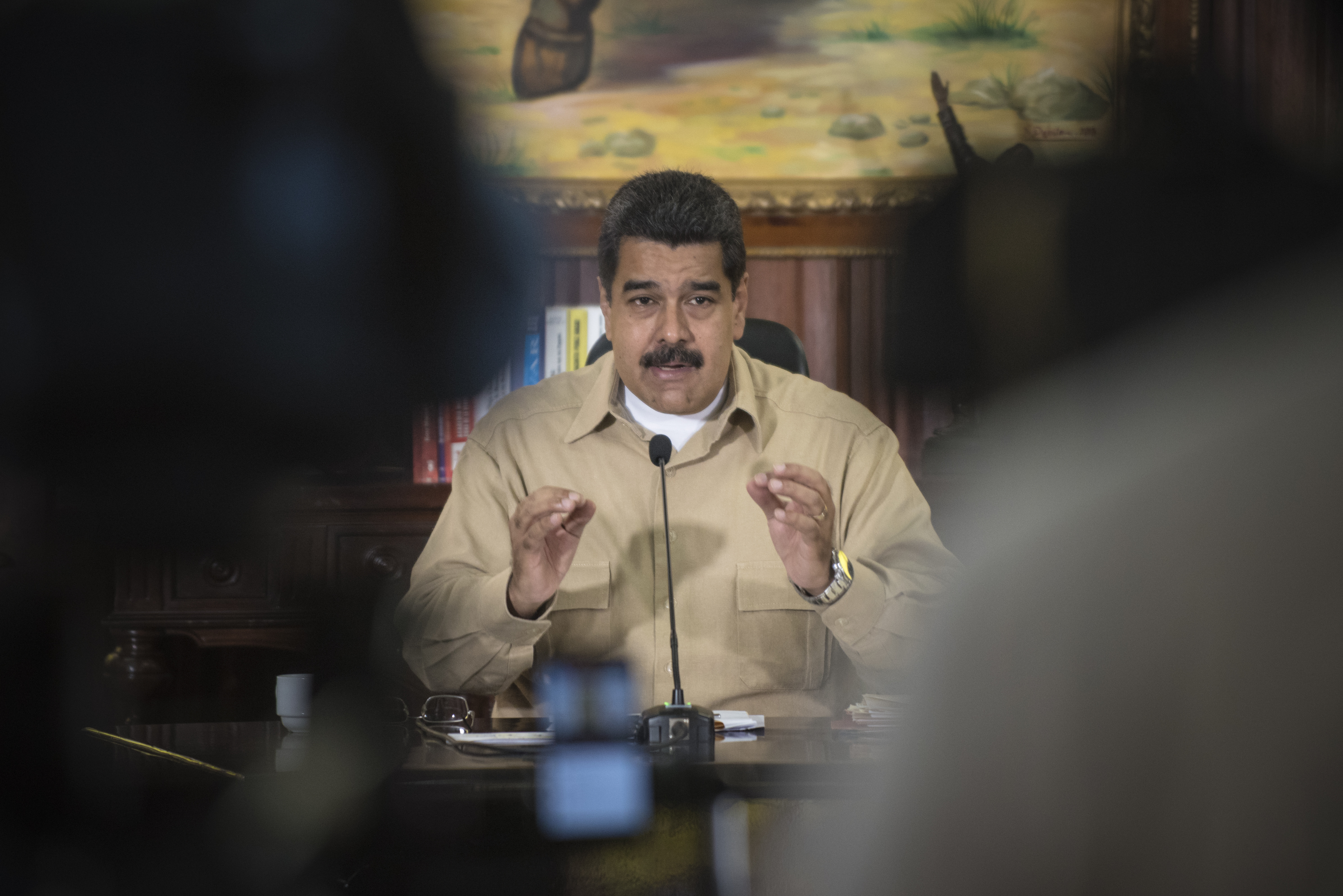Today’s Headlines and Commentary
Lawfare’s daily roundup of national security news and opinion.
Published by The Lawfare Institute
in Cooperation With

Almost the entirety of the Joint Chiefs of Staff are quarantining after Admiral Charles Ray, the vice commandant of the Coast Guard, tested positive for COVID-19, reports the New York Times. Admiral Ray attended meetings in the Pentagon last week with the chairman of the Joint Chiefs of Staff and other military leaders. The staff of the Joint Chiefs are also in quarantine, notes Maggie Feldman-Piltch.
Opposition groups in Kyrgyzstan have seized control of government buildings and released their political allies from prison, according to the New York Times. Their frenzied protests come after widely disputed parliamentary elections on Sunday favored the current president. In response, Kyrgyzstan's Central Electoral Commission invalidated the electoral results today.
Pakistan’s highest court may impose a death sentence on the murderer of American journalist Daniel Pearl, reports The Wall Street Journal. Pearl was abducted and killed in 2002 while researching Pakistani extremist groups for the Journal. His accused killer, a British national with jihadist sympathies, was sentenced to death in 2002, but a lower court drastically shortened his sentence this spring. Releasing the killer early “would be an invitation and encouragement to extreme elements all over the globe to feel free to initiate acts of terrorism,” said Daniel’s father. “It would be a message of impunity.”
Secretary of State Mike Pompeo met today in Tokyo with the Japanese, Indian and Australian leaders of an anti-Chinese alliance known as the The Quadrilateral Initiative, or the “Quad,” writes the South China Morning Post. The leaders agreed to cooperate on strengthening infrastructure in South Asia, increasing their cyberspace presence and safeguarding disputed areas of the South China Sea from Chinese expansionism. Pompeo had the harshest words for Xi’s government, calling on allies to defend against China’s “exploitation, corruption and coercion” in South Asia and referring to COVID-19 as the “pandemic that came from Wuhan.” The Japanese foreign minister avoided directly mentioning China in his remarks.
In a court filing Monday, author E. Jean Carroll accused the Justice Department of improperly intervening in her defamation lawsuit against President Trump. According to the Washington Post, the Justice Department has staked out a role in the case based on the claim that the president acted in his official capacity when he dismissed Carroll’s rape accusation. Carroll’s attorneys argued that Justice Department lawyers had no right to defend the president under the Federal Tort Claims Act—and that “there is not a single person in the United States — not the President and not anyone else — whose job description includes slandering women who they sexually assaulted.”
Reversing a U.S. Court of Appeals for the Fourth Circuit decision, the Supreme Court reinstated South Carolina’s witness requirements for absentee ballots today, reports Zoe Tillman of Buzzfeed News. The justices wrote that “federal courts ordinarily should not alter state election rules in the period close to an election” and extolled the benefits of state sovereignty. Tillman notes that the order, which requires voters to affix a witness’s signature to their ballot, doesn’t apply to ballots that have already been cast in the mail.
Twitter flagged one of the president’s tweets this morning as “spreading potentially misleading and harmful information related to COVID-19.” President Trump had falsely compared the dangers of the coronavirus to the flu.
ICYMI: Yesterday on Lawfare
Benjamin Wittes announced that there will be two live tapings of The Lawfare Podcast this week. The first taping will feature an interview with Andrew Weissmann, one of the prosecutors who worked on Special Counsel Robert Mueller’s team, about his new memoir about the Mueller investigation. The second will feature a conversation between Wittes, Molly Reynolds and Margaret Taylor about Congress’s functioning during the COVID-19 pandemic.
Molly Reynolds and Margaret Taylor explained how recent court decisions affect Congress’s oversight powers.
Jen Patja Howell shared an episode of The Lawfare Podcast entitled “The President and the Coronavirus.” An all-Lawfare panel featuring Benjamin Wittes, Quinta Jurecic, Jack Goldsmith and David Priess discussed what happens when a president is incapacitated. At the time of the podcast’s taping, President Trump was receiving treatment at Walter Reed National Military Medical Center for COVID-19.
Email the Roundup Team noteworthy law and security-related articles to include, and follow us on Twitter and Facebook for additional commentary on these issues. Sign up to receive Lawfare in your inbox. Visit our Events Calendar to learn about upcoming national security events, and check out relevant job openings on our Job Board.




_c.jpg?sfvrsn=9bbcc085_3)
